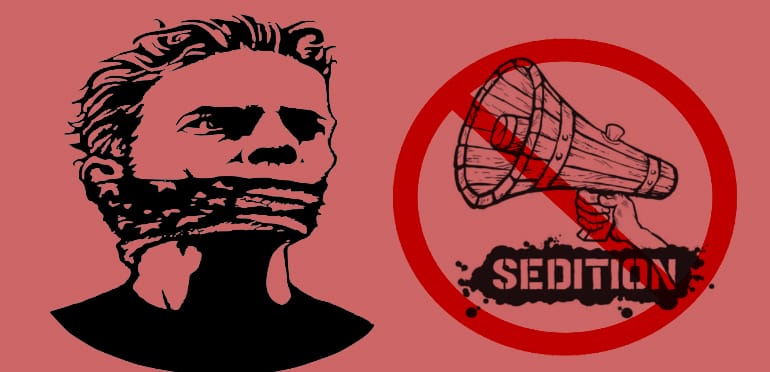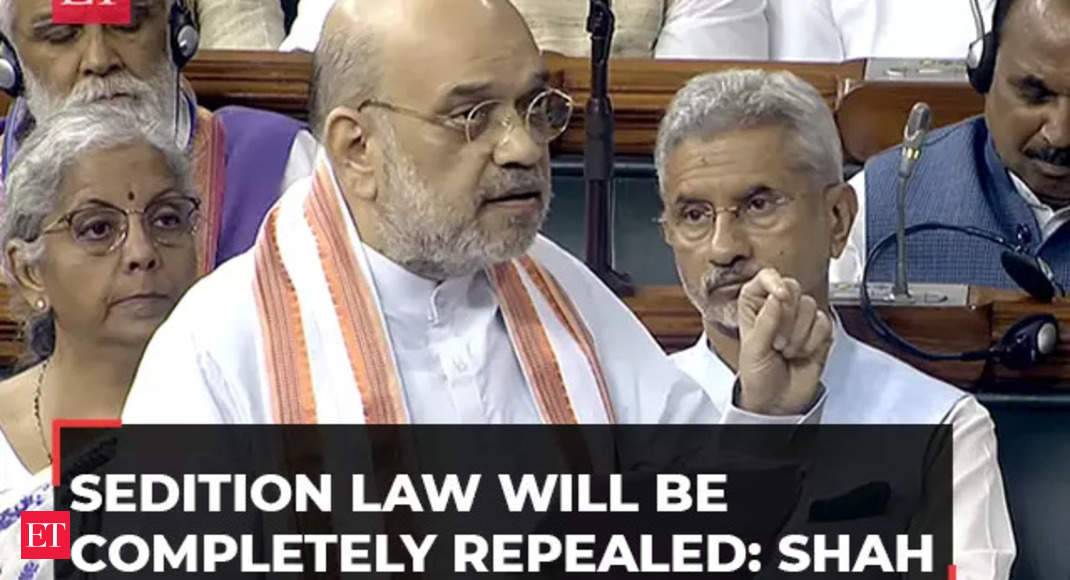The newly revised Section 150 of the sedition law was introduced in the Lok Sabha yesterday along with two other bills. The revamp in the criminal laws comes on the last day of the Monsoon Session of the Parliament. The bill is to be sent to a parliamentary panel for extensive discussion and approval.
Union Home minister Amit Shah announced a set of three new amendments on Friday which overhauls the current existing criminal law. Previously decreed ‘Sedition’ law under Section 124A of the Indian Penal Code has also gotten a revamp under Section 150. Amit Shah claims that the old Sedition Law in the IPC written during the colonial era has been “repealed”. He further explained that the repealment of this law further substantiates the 5 point agenda of the Prime Minister.
According to analysts, the Bharatiya Nyay Sanhita 2024, a proposed overriding of the IPC, has not “repealed” the Sedition Law, but just twitched the nomenclature and included a more comprehensive definition of the Law. While the old section 124A of the IPC claimed Sedition as an act that propagates “disaffection” towards the elected government of India, Section 150 now constitutes acts “endangering sovereignty, unity and integrity of India”.

Section 150 condemns “separatist and secessionist” activities which call for armed rebellion or incite any violence without using the prior words like “contempt” or “hatred”. This leaves the law makers and the citizens of the Country with ample space of conjecture and interpretation because this amendment does not associate or set precedent to the above said activities under any hindrance to public order or incitement to hatred and violence. The new Sedition law then enforces an all inclusive package of any/all free speech to be counted under a criminal offence without even specifying an appropriate reason for it, say officials.
The ambit and scope for penalisation is highly diversified now as anyone can be counted for inciting or “commiting to an act” of such kind. The law enforcement authorities can slap charges upon people without a due diligence given to the reason and causation of the activity. There already exists a constitutional provision to back up in enforcing this amendment. Article 19(2) postulates that the State can formulate any law to charge limitations on free speech which attempt to “endanger the sovereignty, unity and integrity of India”.
Alongside seeking a lawful refuge from the above mentioned Law, there is a significant change in the punishment under the law. In the current constitution, i.e. under Section 124A, a person found guilty of such activities will be punished with imprisonment for life or maximum three years, along with a fine which may/may not be levied upon the accused.

The new bill changes this punishment and reads as “…shall be punished with imprisonment for life or with imprisonment that may extend to seven years, and shall also be liable to pay a fine.” The new Sedition law also includes “financial means” and “electronic communication” as a part of all activities endangering the unity of India.
The increased jail term and essential penalty introduced under this law highlight the Central Government’s attempt to gain authority over any and all forms of expression. Experts also claim that anything from a book, drama or an act can be seditious as per the new law as it is not specified as to what endangers the sovereignty of India.
Colin Gonsalves, s Senior Advocate, attacked the government by saying that they are fooling the people and bluffing the citizens of the country. He said that the same law has been reintroduced under a different name and revised conditions which just soften the words but increase the jurisdiction.
In June, the Law Commission decided to retain the Sedition law– a colonial law introduced by the British to suppress Indian people by Law. It did ask the government to amend the Section 124A to bring more clarity and avoid any misunderstanding in the interpretation and implementation of such provisions. The officials question if this has actually been done. Is the Sedition Law repealed or just renewed?
The Supreme court is already swamped with petitions seeking the repeal and changes in the Section 124A because of the oppressive rules specified under the Sedition Law. Already a huge number of activists are serving jail time without even being given a fair trial.













